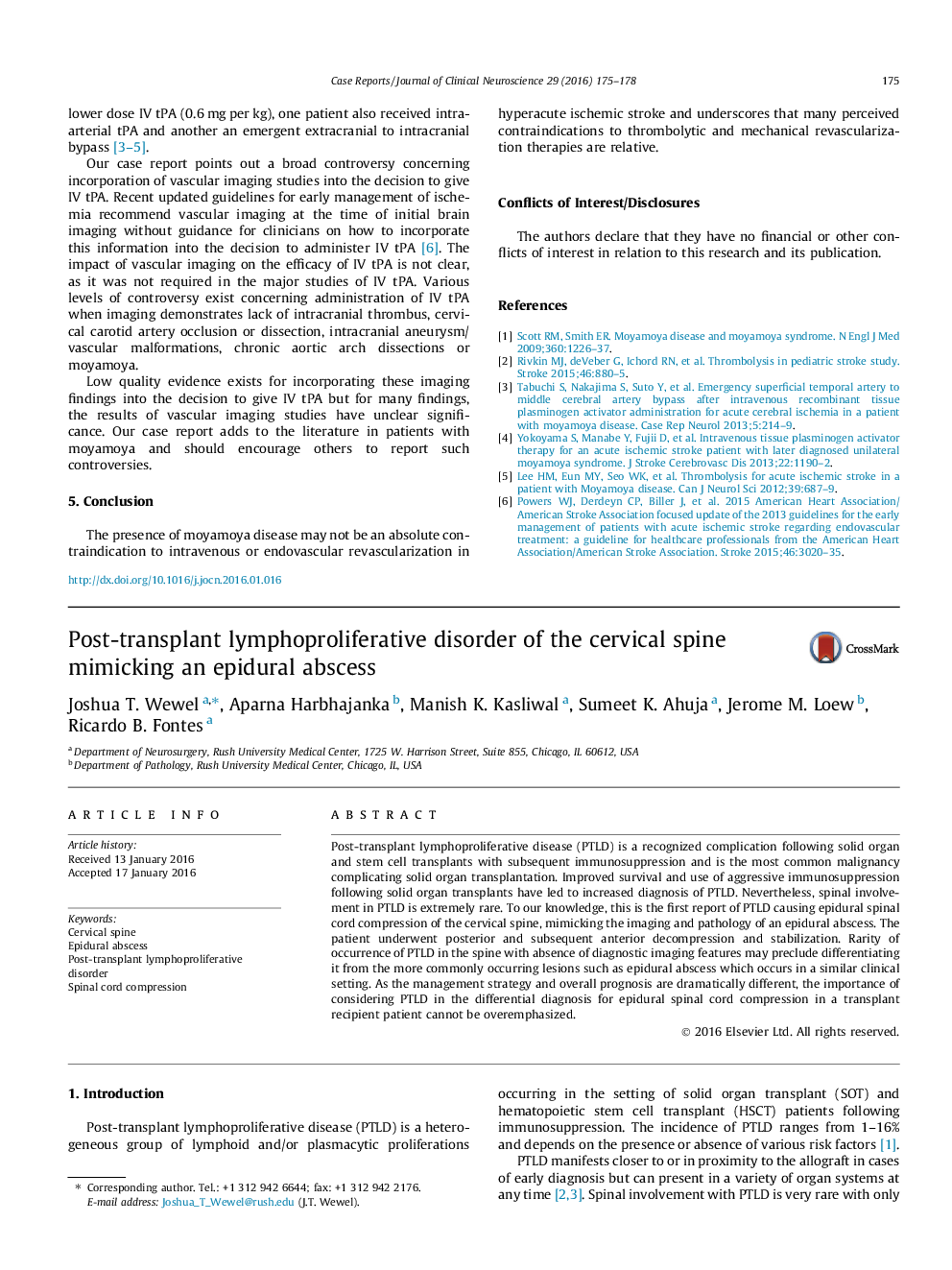| Article ID | Journal | Published Year | Pages | File Type |
|---|---|---|---|---|
| 3058433 | Journal of Clinical Neuroscience | 2016 | 4 Pages |
•Post-transplant lymphoproliferative disease (PTLD) causing spinal cord compression is a rare phenomenon.•Imaging findings of epidural infection and lymphoproliferative disorders may be indistinguishable.•PTLD must be included in the differential diagnosis of an immunocompromised individual.
Post-transplant lymphoproliferative disease (PTLD) is a recognized complication following solid organ and stem cell transplants with subsequent immunosuppression and is the most common malignancy complicating solid organ transplantation. Improved survival and use of aggressive immunosuppression following solid organ transplants have led to increased diagnosis of PTLD. Nevertheless, spinal involvement in PTLD is extremely rare. To our knowledge, this is the first report of PTLD causing epidural spinal cord compression of the cervical spine, mimicking the imaging and pathology of an epidural abscess. The patient underwent posterior and subsequent anterior decompression and stabilization. Rarity of occurrence of PTLD in the spine with absence of diagnostic imaging features may preclude differentiating it from the more commonly occurring lesions such as epidural abscess which occurs in a similar clinical setting. As the management strategy and overall prognosis are dramatically different, the importance of considering PTLD in the differential diagnosis for epidural spinal cord compression in a transplant recipient patient cannot be overemphasized.
